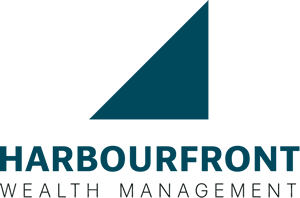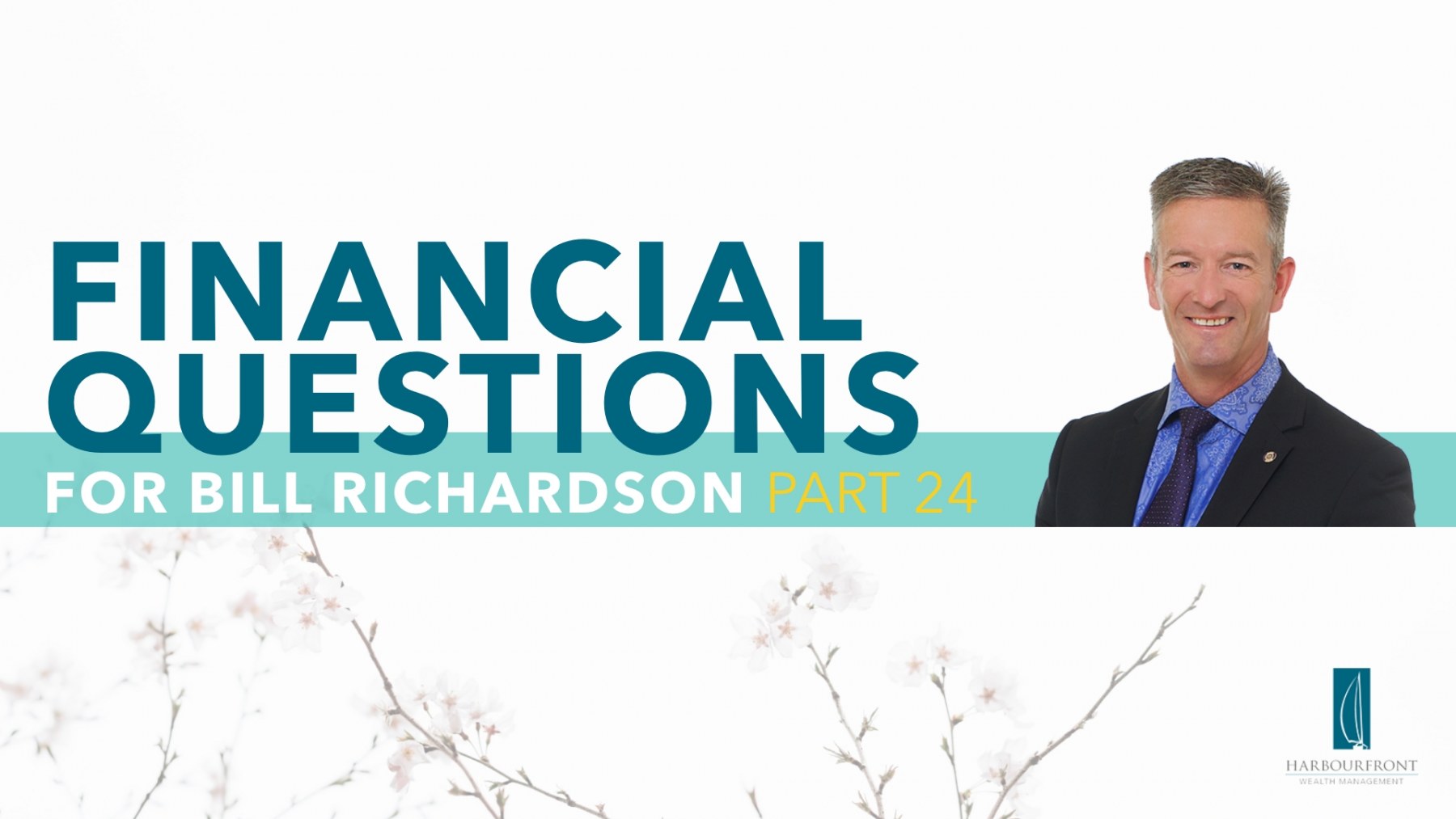Financial Questions for Bill Richardson Part 24
Hello everyone. Hope all is well. Below is the latest version of 3 Questions for Bill based on questions and comments that I have received from clients and other advisors recently. Please let me know if you have any questions or comments.
Question: Is it better to own individual stocks, mutual funds or ETFs?
To answer this properly, I am going to answer this as three separate questions.
Each of these three options is a good option and, in many cases, a combination is the right solution. But let’s take a look at the pluses and minuses of each.
Before we do so, let’s look at a key concept. If you wish to manage your own investments, only do so when you believe that you have the capabilities to do so. For example, if you want to invest in GICs, you don’t need a manager. You can make sure the institution has CDIC protection and compare rates. Pretty simple. The same goes for buying bonds. Check creditworthiness and compare rates but stick to the highest quality issuers and don’t chase yields because that is a dangerous game. Buying stocks is more difficult, but if you are going to buy Royal Bank or Microsoft and hold them for 10 years, you are probably fairly safe. But what about buying companies in Europe or China? That requires specialized expertise and it is probably best to hire a manager.
What is your view of mutual funds?
Mutual funds have been around for a longer time than ETFs and most of our readers are familiar with them. Most mutual funds are actively managed and when you buy a fund, you are paying for the knowledge, experience and track record of the manager. Now, revisit the key concept above. If you have a business or economics degree, you can probably understand how stocks work and what should be considered when you buy them. If you don’t have a financial background, a good fund manager can do the research, choose the stocks and build a portfolio that can generate good returns and often, protect you from big mistakes, so mutual funds are a good choice.
One thing that I look for first is whether a fund is just a “closet indexer”. That is when I overlay a chart of the fund’s performance and the S&P 500 index, and they are exactly the same, I might opt for a cheaper solution. What I am looking for in a fund manager is that he has consistently outperformed the index that I am looking at. That is, they do better when markets are rising and fall less when markets drop.
The downside with mutual funds is fees. Of the three options, mutual funds have the highest fees. Is that true, though? If you are an investor with a small portfolio, transaction fees to buy and sell stocks can add up pretty quickly.
The key benefit of mutual funds is diversification. Diversification slows down price. If you buy a handful of stocks and concentrate them in a couple of sectors, like technology or healthcare, you might be in for a bumpy ride. If a manager buys 40 companies, 20% may be big winners, 20% big losers and your performance will be dependent on the middle 60% or so. If you picked the wrong five, you could lose much of your investment.
One area that I am not a fan is bond funds. It is best to own bonds when rates are high and/or falling but that is not the case today. 10-year bonds yields are in the 1.5% range today so if you do the math, “pay a manager 0.9% to manage the fund and then pay your advisor another 1% to help with your portfolio” and you are playing a losing game. If rates go up, you lose even more, so in the case of bonds, you are better off buying GICs or talking with me about Private lending, where I can get you in the range of 5% after fees.
What is your view of ETFs?
ETFs are funds. Just look at the name – “Exchange Traded Funds”. They generally have lower fees than mutual funds, but most are based on a strategy and are mostly passively managed. My favourite example is the BMO Low Volatility Fund. The strategy is to identify the 100 largest Canadian companies and then buy the 40 lowest volatility of the group. This is a simple and fairly effective strategy, and the fees are lower than mutual funds.
ETFs work well if you are an “Indexer”. That is, your goal is to match the returns of the S&P 500 Index. You can simply buy SPY for the S&P 500 or XIC for the TSX Composite Index. Put a few of these together and you can build a well-diversified portfolio.
Because ETFs have lower fees, they work better for bonds and there is a wide variety of sector ETFs to choose from. I particularly like IHI, iShares US Medical Devices ETF. It is a great demographic play as companies in the fund make artificial knees, hips, heart valves, etc. and Baby Boomers will sooner or later need these.
What is your view of owning individual stocks?
I generally suggest individual stocks for larger portfolios, especially large companies with a track record of consistent and predictable earnings growth that is expected to continue into the future and that I can buy at reasonable prices.
Let’s say that you have a relatively small portfolio but are saving diligently for retirement and have a minimum timeframe of five to ten years. I’d suggest that you start with mutual funds and transition to individual stocks when your portfolio size reaches $500,000. This also gives you time to learn about important factors for stocks selection, diversification and asset allocation.
If you have a larger account, I’d suggest that we could work with you to build a good large companies portfolio but also include some mutual funds or ETFs for diversification. For example, we currently prefer the Medical Devices ETF as part of our healthcare component over buying individual healthcare stocks.
The bottom line is that the selection of stocks, mutual funds or ETFs is largely dependent on your unique circumstances. We have the expertise to guide you to make the proper decisions.
Have a great day,
Bill

